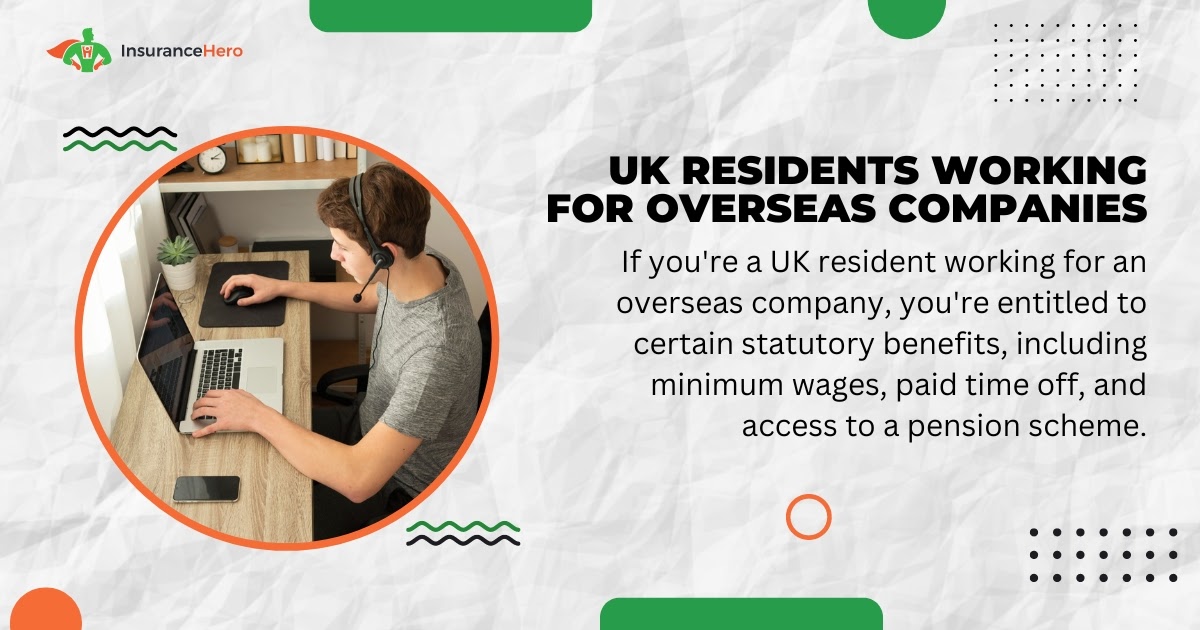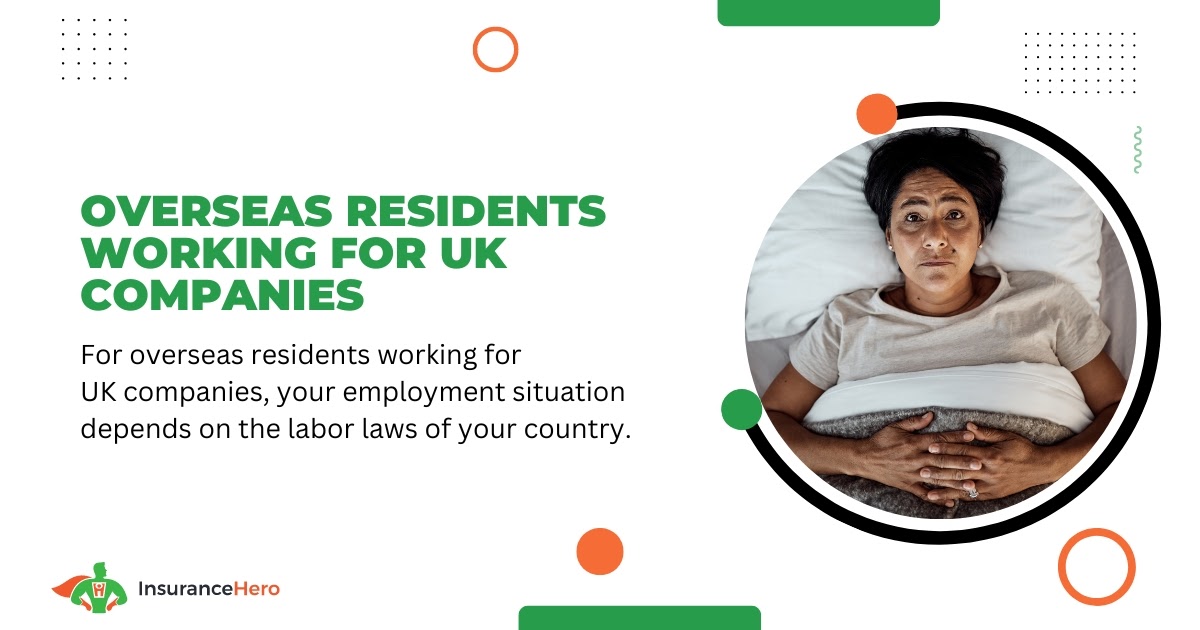Remote Worker Life Insurance In The UK

One modern trend in commerce and capitalism is the push for more remote work, freelancing, gig entrepreneurship, and other flexible employment options.
For remote workers, it offers greater control over their lives and often an easier time with work-life balance. For companies, it usually opens the door to outsourcing tasks to workers without having to pay them benefits, a competitive salary, or even a pension. This is the line between self-employed gig workers and salaried remote workers.
As a remote worker in the UK, you have many concerns, including planning for the future. Are you assured of your salary, benefits, and pension?
The exact circumstances may vary, and planning for the future in an unstable economic climate can be distracting and distressing.
Remote worker life insurance is a major part of planning for the future, especially for your spouse and family after you pass. Once life’s immediate concerns and expenses have been satisfied, it makes sense to turn to that hopefully far-off future.
As a remote worker, what are your options for life insurance coverage in the UK? There are a few different situations to consider.
Find Your Cheapest Remote Workers’ Life Insurance Quote. We Won’t Be Beaten On Price

Remote Workers Living In The UK At UK Companies
The first option is for a UK resident working for a UK company. You’re classified as remote simply because that’s how you work, somewhere, not in an office. Maybe you work from home.
You might be able to work from anywhere you like and take advantage of that to work from different locations throughout Europe or even on vacations away from the continent. You might also work from home, enjoying flexible hours and the ability to spend time with your family.
Whatever the case may be, as long as you’re an actual employee of the company and you’re a resident of the UK, the company will be required to provide a slate of benefits ranging from a competitive salary to sick pay and parental leave.
So, is life insurance included in this standard benefits package? Yes and no.
Life insurance is not a mandatory part of the benefits and compensation packages offered to remote workers in the UK or of UK companies. However, it’s a relatively common addition to the benefits package to help make working for the company slightly more attractive.
Other benefits tend to be more compelling, so life insurance is usually more of an afterthought.

Additionally, the life insurance provided by a company you work for may or may not be the ideal choice.
It may not be held through a provider you like or trust, or it might have restrictions or limitations on the amount of cover you can get, or it may simply remove too much control from your hands. You can certainly still take advantage of it, though.
Many UK residents, remote workers or otherwise, are under-covered or not covered by any life insurance policy.
It’s almost always a good idea to look into such a policy to see what you can get, how much it will cost, and how it might affect your dependents.
Fortunately, there’s no penalty for having multiple life insurance plans. If you feel under-covered by your company’s offerings or your company doesn’t offer anything for you, you can sign up for your own. For more information, see the later sections of this guide.
UK Residents Working for Overseas Companies
Another option is that you’re a UK resident, living and working in the UK, but the company you’re working for isn’t based in the UK. Maybe they’re based elsewhere in Europe, the United States, or Canada.
Wherever they’re located, as long as you’re in the UK, you don’t have to worry too much.
This is because, under UK law, if any company wants to hire UK workers to work remotely, they have to offer at least a minimum set of compensation and benefits, called statutory benefits.
These are meant to be roughly comparable to the benefits and compensation afforded to UK residents working for UK companies. This prevents foreign companies from hiring UK workers and treating them worse than citizens.

Statutory benefits include things such as:
- Guaranteed minimum wages and overtime pay.
- Paid time off and sick pay.
- Maternal, Paternal, and Parental leave.
- Bereavement pay and leave.
- Access to a pension scheme.
One thing not on this list, however, is life insurance. When a company in the UK offers life insurance as part of its benefits package, this is usually known as life assurance.
Functionally, it’s the same as life insurance, but it’s managed by the company with your input rather than wholly by you.
It’s worth noting that, occasionally, foreign companies will try to skirt these laws by classifying you as an independent contractor rather than an employee, or by assuming you don’t know your rights.
Make sure you know what kind of contract you’re working under and which laws apply; you may be able to pursue the company with the backing of the United Kingdom Government through the complaints system.
HM Revenue and Customs, the Employment Standards Inspectorate, and other agencies are all keen to take this quite seriously.
And, of course, since life insurance (or assurance) isn’t guaranteed as part of the law, it’s frequently possible that you don’t have any coverage from your employer.
If you need life insurance coverage or want to explore your options and see what’s available on the market, skip to the later sections of this post for more information.
Overseas Residents Working For UK Companies
The third possible situation (out of four; the fourth concerns overseas workers for overseas companies and doesn’t apply to this discussion) is where you’re a foreign resident working for a UK company.
Overseas employees are in a variable state depending on where they live. Different countries have different labour laws. In much the same way that a company hiring people in the UK has to play ball by the UK rules, a UK company hiring overseas has to play by the rules of the country where they’re hiring.

Fortunately for those companies – and to the dismay of more than a handful of remote workers – many other countries have worse or laxer labour laws than the UK. Many UK companies offer employees a similar pay and benefits package regardless of location, though there may be some variations.
The exception, of course, is when they classify remote workers as contractors.
It’s the same story no matter where a company originates or where the remote worker lives; when you work as an independent contractor, you have more flexibility and freedom, but you also take many matters into your own hands, including everything from pensions to life insurance cover.
If you’re in the market for life insurance coverage, most of the information below can be helpful, but we may not be. We help UK residents get UK life insurance coverage; if you’re outside the country, you’ll likely have a different set of insurance providers and options available to you.
However, we offer life insurance plans for expats, which are certainly worth considering.
Many of the same terms and information will be relevant – such as the options for term and whole life insurance – but the specific providers will differ. Still, if you can get anything valuable from the remainder of this post, feel free to do so.
What To Consider When Shopping For Life Insurance In The UK
There are many factors to consider when shopping for life insurance in the UK and elsewhere. Discussing variations and details will, by necessity, be generalised; the specifics of policies, cover, and terms will depend on the company you choose to work with, the quote they give you, your health, and your specific needs. In broad terms, then consider the following.
Single vs Joint Insurance Cover
One of the first decisions you may need to make is whether to purchase a single policy or a joint policy. A single policy covers you and you alone. When you pass, it pays out to the beneficiary you designate.

In contrast, a joint policy covers two people, generally yourself and your spouse. When one of you passes, the policy triggers and the benefit is paid to the surviving partner. That’s that; the policy generally doesn’t continue, and you may or may not be able to assign someone other than your partner as the beneficiary.
Deciding whether to have a joint, single, or two policies (one for each partner) can depend on your individual life circumstances, but it’s worth considering.
Term vs Whole Life Insurance
One of the biggest choices to make is what kind of policy you want.
In general, term life insurance policies run for a fixed period, typically 10, 20, or 40 years. During that time, the cover amount and premiums are fixed. If you pass during the covered term, the benefits are paid out.
If you don’t, though, and the term runs out, you have nothing to show for it. Sometimes, you can roll over into a new policy with a recalculated premium based on your new life circumstances, which may not be financially viable.
There are also various kinds of term life cover. These include decreasing term life insurance policies tied to a mortgage loan balance, and the mortgage will be paid off if you pass away.
Since you pay down your mortgage over time, the amount the policy covers goes down, hence the name. Conversely, increasing term policies increase the amount they pay out year over year, mostly to account for inflation.
Whole life cover, in contrast, doesn’t have an expiration date. However, they generally have somewhat higher-than-average premiums for lower-than-average cover amounts. If you live longer than anyone expects, you may have paid more into the policy than you get out.
How Much Cover You Need
Another consideration is how much coverage you want to maintain. You can pick an amount that seems good and go with it – like getting a £100,000 policy to cover your mortgage (or some of it) with whatever is left over to go to your dependents.

Alternatively, you might use a formula to estimate the amount of cover. The Human Life Value estimation method calculates the amount of money you’re likely to earn over your lifetime and aims to set a policy around that value.
You might choose a more straightforward estimate, such as the cost of college tuition for each child you have or plan to have.
Another common framework is the DIME method, which considers debt, income, mortgage, and education costs to determine how much money is needed to cover lost income and debt obligations.
Whatever your choice, it’s always a general fact that the more cover you want, the more you’ll spend to get it.
Timing for Applying
Sometimes, you may consider applying for cover ASAP or even delaying for a year or more, depending on the circumstances. For example, if you’re pregnant, your body changes, and you can develop health problems.

Applying before you develop those problems is better than after; since you don’t have them, you don’t have your premiums increased for it. If you create them, waiting to work past them can be more beneficial.
That said, the older you get, the more likely health problems will develop, or a disaster will strike, and it’s often better to be covered than not.
How to Get the Best UK Life Insurance
When it comes time to find the life insurance you deserve, there’s only one clear solution: Insurance Hero. Here, we act as your life insurance superhero.

All you need to do is fill out a simple form, and you’ll have a tailored selection of quotes available—not just one or two, but quotes from all of the UK’s top life insurance providers. Give it a try.
Steve Case is a seasoned professional in the UK financial services and insurance industry, with over twenty years of experience. At Insurance Hero, Steve is known for his ability to simplify complex insurance topics, making them accessible to a broad audience. His focus on clear, practical advice and customer service excellence has established him as a respected leader in the field.



